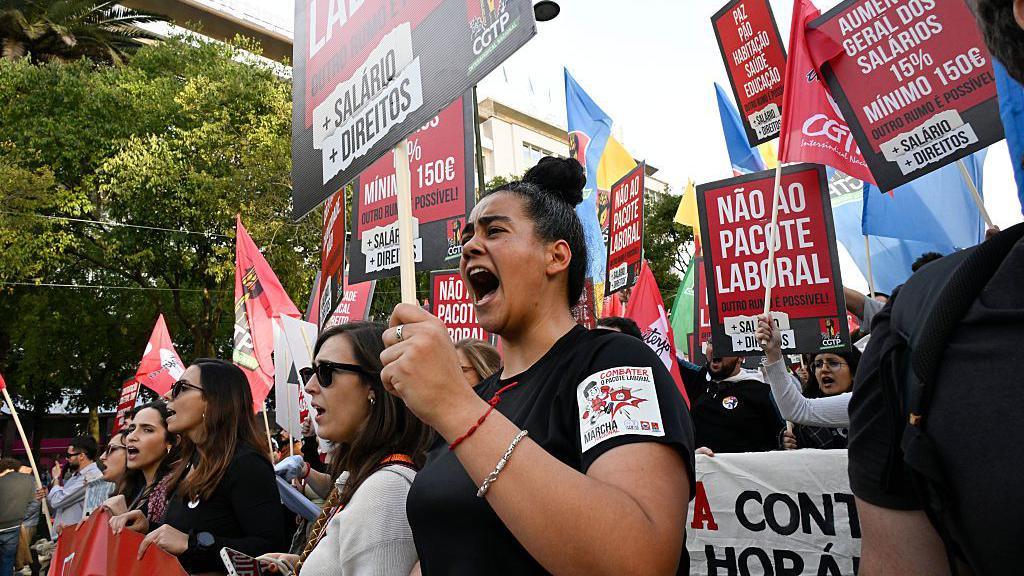Tens of thousands of demonstrators have rallied in Lisbon, Portugal, to voice their opposition to proposed labor laws that they argue pose a threat to workers’ rights.
The center-right government’s proposals aim to streamline employment procedures, including easing dismissal processes, facilitating outsourcing, and modifying compassionate leave policies, such as reducing bereavement leave for women experiencing miscarriages.
Government officials assert these measures are essential for enhancing job market flexibility and boosting productivity in Portugal, which is considered one of Western Europe’s economically challenged nations.
The leader of CGTP, Portugal’s largest trade union, has denounced the reforms as “one of the greatest attacks ever made against workers” in the country and announced a general strike to be held on December 11.
The bill is expected to pass in parliament, bolstered by support from the far-right Chega party.
Reuters reports that the union estimated approximately 100,000 protesters filled Lisbon’s main avenue, while the Associated Press also noted the presence of tens of thousands. An official police estimate has not been released.
Miriam Alves, 31, an employee at a medical device company, told Reuters at the demonstration that the reforms represent “clearly a step backward in working conditions and could lead to a complete lack of job security.”
Madalena Pena, 34, an archive technician, stated that the government is reversing labor rights “in an unfair, subtle, and cunning way, without having said anything before the election” in May.
CGTP general secretary Tiago Oliveira formally announced the upcoming strike at the protest.
Regarding the proposed changes, he remarked, “If implemented, it would be a real setback in the lives of each and every one of us.”
Protesters also advocated for wage increases. Official data indicates that over 50% of workers earned less than 1,000 euros (£879) per month last year, while the minimum wage stands at only 870 euros (£764).

